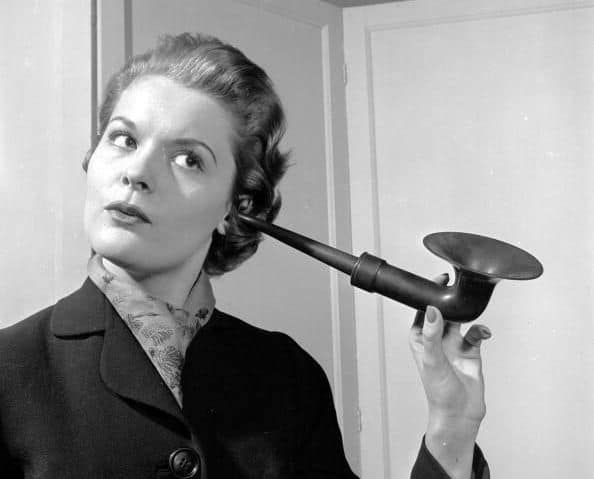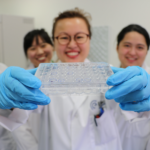
Hearing aids have come a long way since the 18th century when the ear trumpet was first commercially produced to help people with hearing loss. It came in various shapes and sizes and worked by collecting and funnelling sound through a narrow tube into the ear.
Thankfully we have come a long way, and hearing aids offer people more than just a sound amplifier in today’s world. Hearing aids are technologically sophisticated communication devices. They are discrete and sometimes even invisible. They offer a wide range of customisable functions from smartphone connections, background noise-reduction properties and speech enhancement. You may be surprised just how many benefits today’s hearing aids provide – you’ll be pleased to hear that the whistling is now a thing of the past.
But how do they work?
Hearing aids don’t just work to make sounds louder, they customise the sound, help reduce background noise, improve communication and may help alleviate tinnitus symptoms.
Hearing aids are usually made up of four key components the microphone, the computer processor, the speaker and the battery.
- The microphone picks up the sounds in the surroundings before transmitting the sounds to the hearing aid’s processor.
- The computer processor analyses and adjusts the sounds to suit individual hearing loss.
- The hearing aid then transmits the acoustical signals to the ear canal via tubing and earmould or a receiver, releasing it as sound which is transmitted to the inner ear.
- In the inner ear, sounds are transformed into electrical impulses, which the brain processes into sounds that the user can understand.
- The hearing aid is powered by a rechargeable or replaceable battery.

Seek advice from a qualified Lions Hearing Clinic audiologist
Without the support of a qualified audiologist, you risk not getting optimum hearing outcomes and your hearing aids ending up sitting in your top drawer.
Like smartphones, the advanced features in hearing aids help make life better and more manageable. A qualified audiologist from Lions Hearing Clinic will prescribe a hearing treatment based on individual hearing and lifestyle needs, and provide ongoing care, programming and rehabilitation to reach individual hearing goals.






